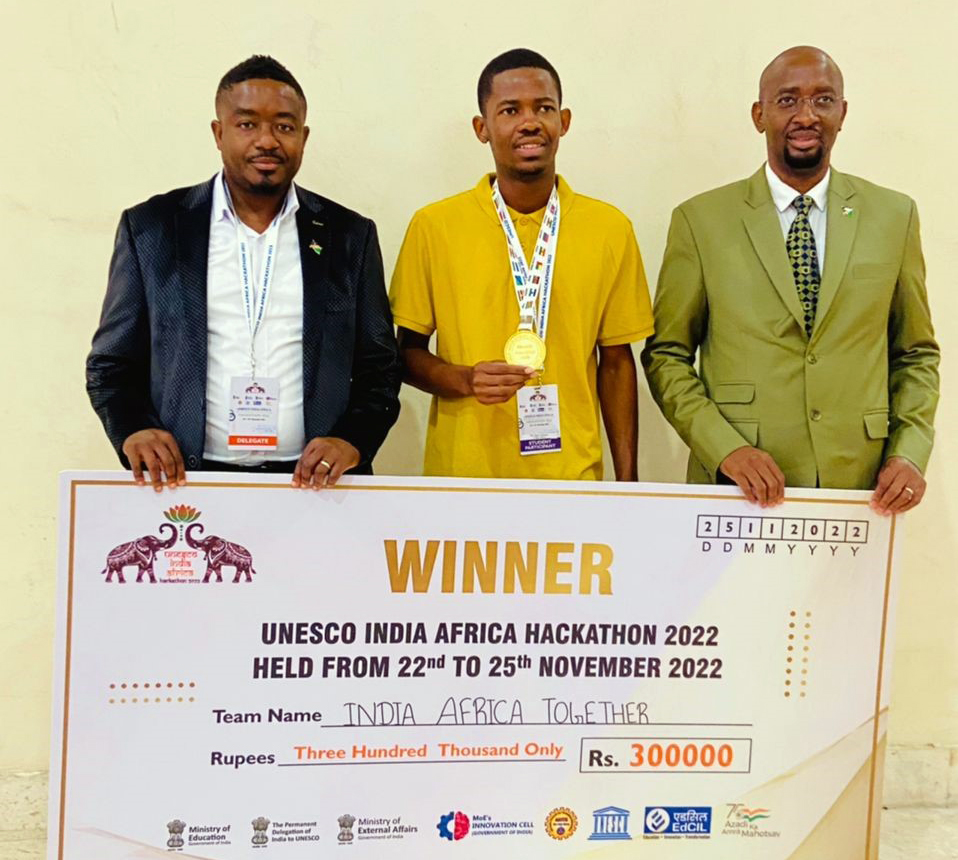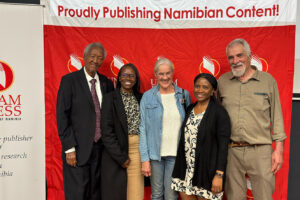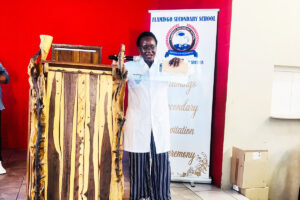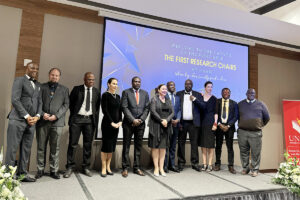Using machine learning, Tjikumise participated in developing an application that predicts the best fertiliser for specific crops
Held annually, the UNESCO India-Africa Hackathon is a 36-hour event that brings together students, educators, teachers, and the research community of India and its African partners to tackle the common challenges faced by their countries and serves as a facilitator for cultural amalgamation.
The UNESCO India-Africa Hackathon provides a suitable platform allowing young innovators to come together and find solutions for social, environmental, and technical problems faced by the collaborating nations.
It serves as the foundation for creating potential start-ups with the potential to transform the world. It allows the participating students to unleash their creativity and explore new technologies to solve real-world problems under the guidance of experts – thus, spearheading business innovation in the modern world.
Twenty competing teams were awarded as winners, of which one of them had a University of Namibia student as a member. The education fair centred on five themes including Health and Hygiene, Agriculture, Water and Sanitation, Energy, and Education.

Shaun Tjikumise, and his team, worked on the Agriculture theme. Under this theme they developed an application that predicts the best fertiliser for specific crops, using machine learning. Tjikumise is a third-year student at UNAM, doing a Bachelor of Science in Information Technology (Honours).
“I have made friends from all over Africa and India.”
“I have really learned a lot in terms of programming and cultural awareness.”
Collaboration of the student teams working together to solve shared problems opens the doors to cultural assimilation by introducing students and their mentors to methods, values, and manners different from their own.
Mr Leonard Imene from the Innovation & Development Accelerator in the Office of the Pro-Vice Chancellor: Research, Innovation and Development at the University of Namibia, accompanied the participating students to India.
“The hackathon provided a great platform for building collaborative partnerships and alliances between Namibian students and their peers from other participating countries.
“It is crucial for Namibian youth to participate in these types of initiatives to be able to spearhead the future local digital ecosystem.”
The 9 students from UNAM were joined at the Hackathon by 6 Computer Science students from Namibia University of Science and Technology (NUST). Apart from hosting India, this year 603 students from 22 African nations participated in the hackathon event.
Participating students from Namibia were sponsored by UNESCO and the Government of India, through their Ministry of Education, Innovation Cell. Additional support was provided by UNAM, NUST, and the Namibian Government through the Ministry of Information and Communications Technology, the High Commission of India in Namibia, and the High Commission on Namibia in India.





